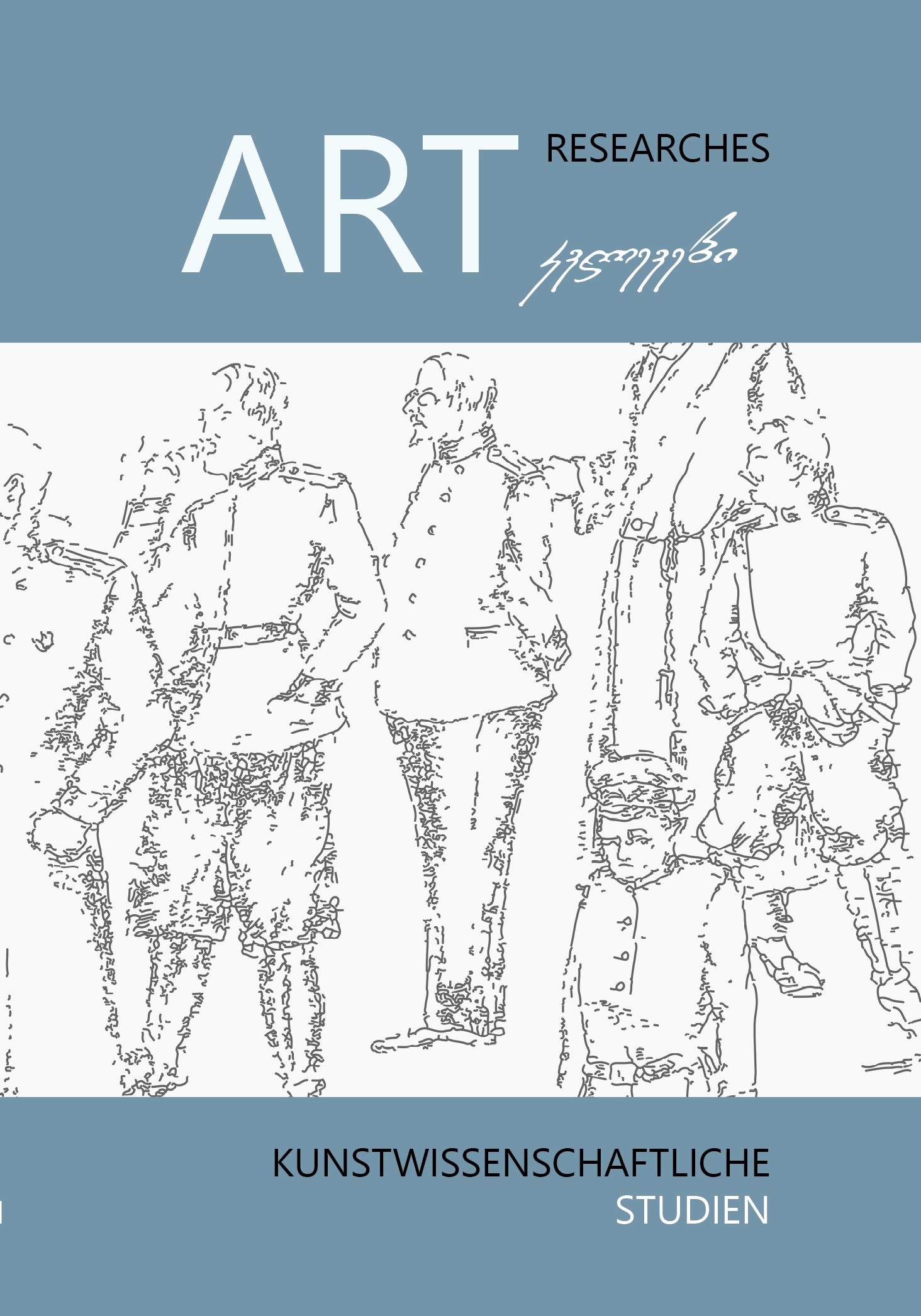ქართული თეატრის „მეორე ოქროს ხანა“ (70-იანი წლების დასაწყისი)
Main Article Content
ანოტაცია
As a preamble to this article, the origins of the emergence of the term "postmodernism" (Rudolf Pannwitz, Arnold J. Toynbee), the postmodern principles and concepts are discussed and presented: "The death of God" - "God is dead!" (Friedrich Nietzsche), "The Death of the Author"/ ("La mort de l'auteur") (Roland Barthes), "The Death of the Subject", "Simulacrum" - "Simulacres et Simulation" (Jean Baudrillard), "The Realm of Hyperreality" (Umberto Ecco), "Pastiche", etc. The article discusses all of the concepts mentioned in the article. The article deals laconically with all the concepts and features prevalent in postmodern art that have changed "reality" or "reality", as well as their conception and the diversity of their interpretation. In this respect, the following should be emphasised: "the principle of double coding", non-selection, accentuation of the role of communication (Jacques Lacan, Jacques Derrida, Jean-François Lyotard, Michel Foucault), interpretative thinking, conceptualism.
In Soviet theatre art, the beginning of the period of postmodernism is assumed to be the end of the "theory of non-conflict", which was developed at the end of the 1950s, as well as the process of rehabilitation of repressive artists. This section presents the reforms that took place in Russian theatre: the founding of the youth theatre "Sovremennik" (1956) and the "Taganka Theatre" (1964).
The actualisation of the inspirations of Brecht, Meyerhold, Eisenstein, the construction of a new model of modern political theatre. The stage reforms of the children's theatre in the "Moscow Playhouse" and the "Central Children's Theatre".
The important part of the article concerns the reforms carried out in the Georgian theatre. Of particular interest in this regard is the establishment of youth theatres in Georgia, as well as the implementation of Brecht's theatre aesthetics, the role of Akaki Bakradze in the Rustaveli Theatre in the philosophical-political reanimation of the theatre process, the reform in Georgian youth theatre and the formation of the tandem of the director and stage artist (painter) (R. Sturua and M. Shvelidze, Sh. Gazerelia and M. Chavchavadze).
In the section devoted to nihilistic, artistic-critical theatre performances distinguished by "postmodern sensibility", two performances are examined - "Qvarqvare" by R. Sturua (1974) and "Outcasts" by Sh. Gazerelia (1973). In these performances of the 1970s, the characteristics and features of postmodern art were already discernible - demythologisation, carnivalesque, dominance of the subtext, metaphorisation of the text, use of the "author's mask", the perception of the world as an amorphous, polyvariable reality, the conventionality of truth, concentration on discourses, on debates.
The paper is a fragment of the textbook on theatre theory and theatre criticism. However, it is also intended for students interested in the art of theatre. For this reason, special attention is paid to the performances of the early 70s of the 20th century, staged on stages abroad and in Georgia. These outstanding performances are vivid examples of the fact that the ideas of post-modernism had taken hold, they are proof that the performance had taken on a new shape, a new, unexpected, brilliant interpretation of well-known texts and scores with the multi-layered effect of surprise.
